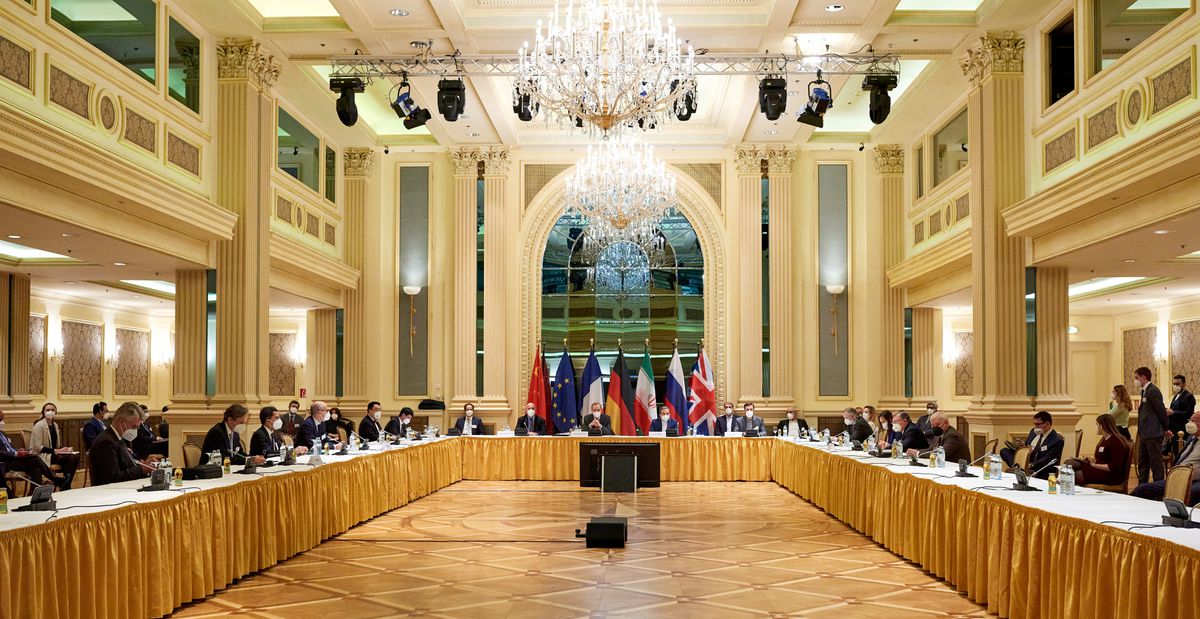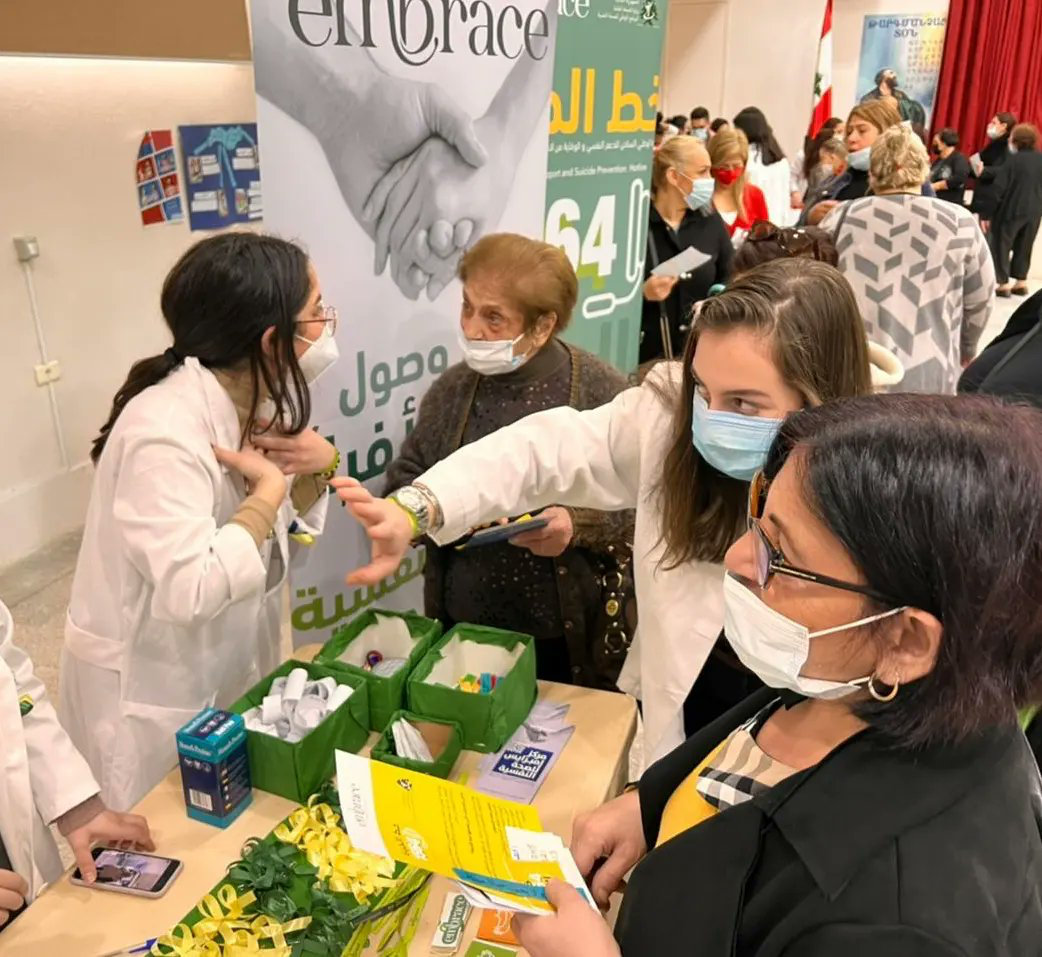Northeast Syria’s experience signifies challenge of ending use of children in conflicts
DUBAI: Rawan Al-Aleku was visiting a friend in Debrassiye, northeast Syria, in the summer of 2020 when she was conscripted by the Syrian Democratic Forces, an alliance of Kurdish and Arab militias raised in 2014 to fight Daesh. She was just 16 years old.
Narrating Al-Aleku’s story, her Iraqi Kurdistan-based relative Farhad Osso, a human rights activist, told Arab News that the schoolgirl had effectively been kidnapped after her friend’s mother took her to the local Kurdish security office.
Al-Aleku found herself whisked away to a boot camp for young conscripts, where she underwent months of grueling military drills and political indoctrination. All the while, according to Osso, she had no contact with her family.
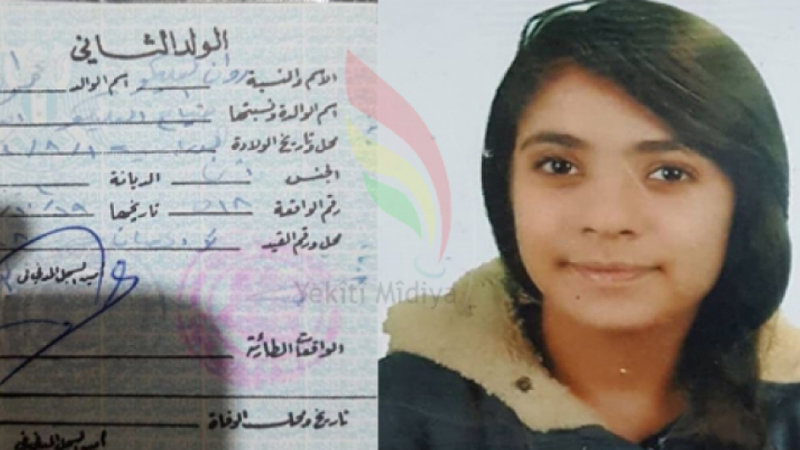
As the weeks turned into months, Al-Aleku’s father Omran made increasingly angry demands for her release, eventually resulting in his arrest.
When he was released, he published an open letter on Facebook demanding his daughter’s freedom.
“My case is that of kidnapping, the kidnap of a child from her home, her school and her friends and her childhood,” Omran wrote, appealing directly to the SDF’s Commander-in-Chief Mazloum Abdi, who had one year earlier pledged to end the practice of child recruitment.
“These traitors kidnapped my daughter. I have been told you are following through with your pledge, so why is it you apply the rules only where you deem fit? You stole my past, present and future.”
Al-Aleku’s story is not an isolated one in northeast Syria. When Daesh began seizing territory in the summer of 2014, the SDF raised a multi-ethnic alliance that teamed up with the US-led coalition to retake territory from the extremists. In the process, scores of under-aged fighters were swept into its ranks.
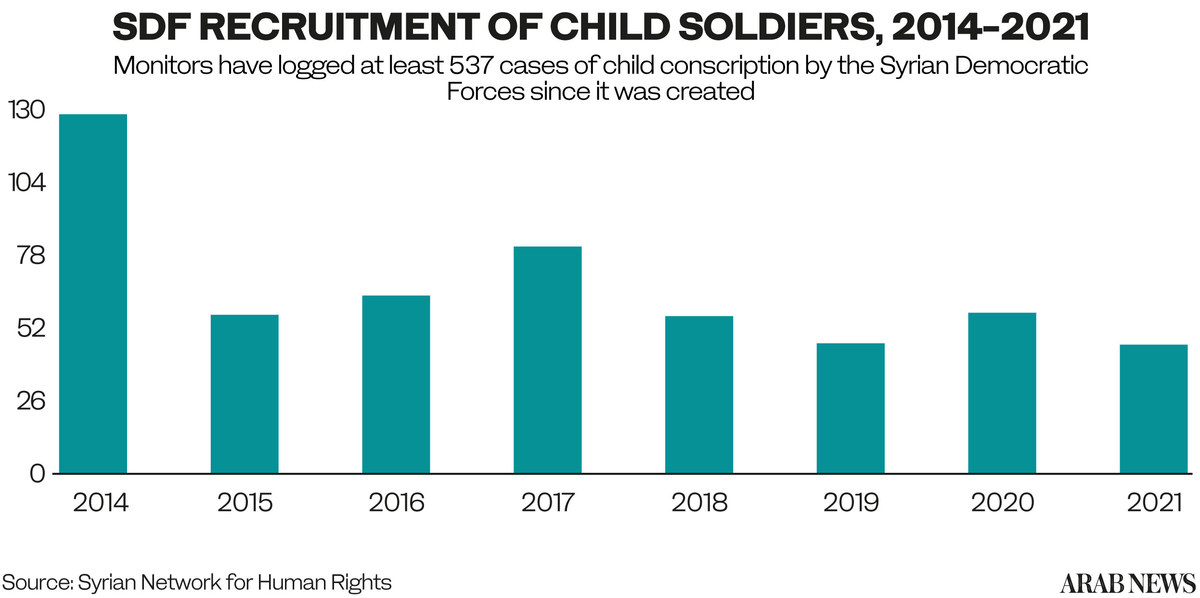
Before the Syrian uprising of 2011, Kurdish language and culture were suppressed by the regime of President Bashar Assad.
But when regime troops were withdrawn from Syria’s multi-ethnic north to quell the uprising elsewhere, the Kurds began to manage their own affairs.
It was in 2014, with the emergence of Daesh, that the Kurds mobilized to defend their newfound freedoms.
Syria’s Kurds won global praise for their sacrifices, which resulted in the final territorial defeat of Daesh in the town of Baghuz in March 2019.
The women in the SDF’s ranks were a particular source of inspiration, later depicted as fearsome heroines in movies and even video games.
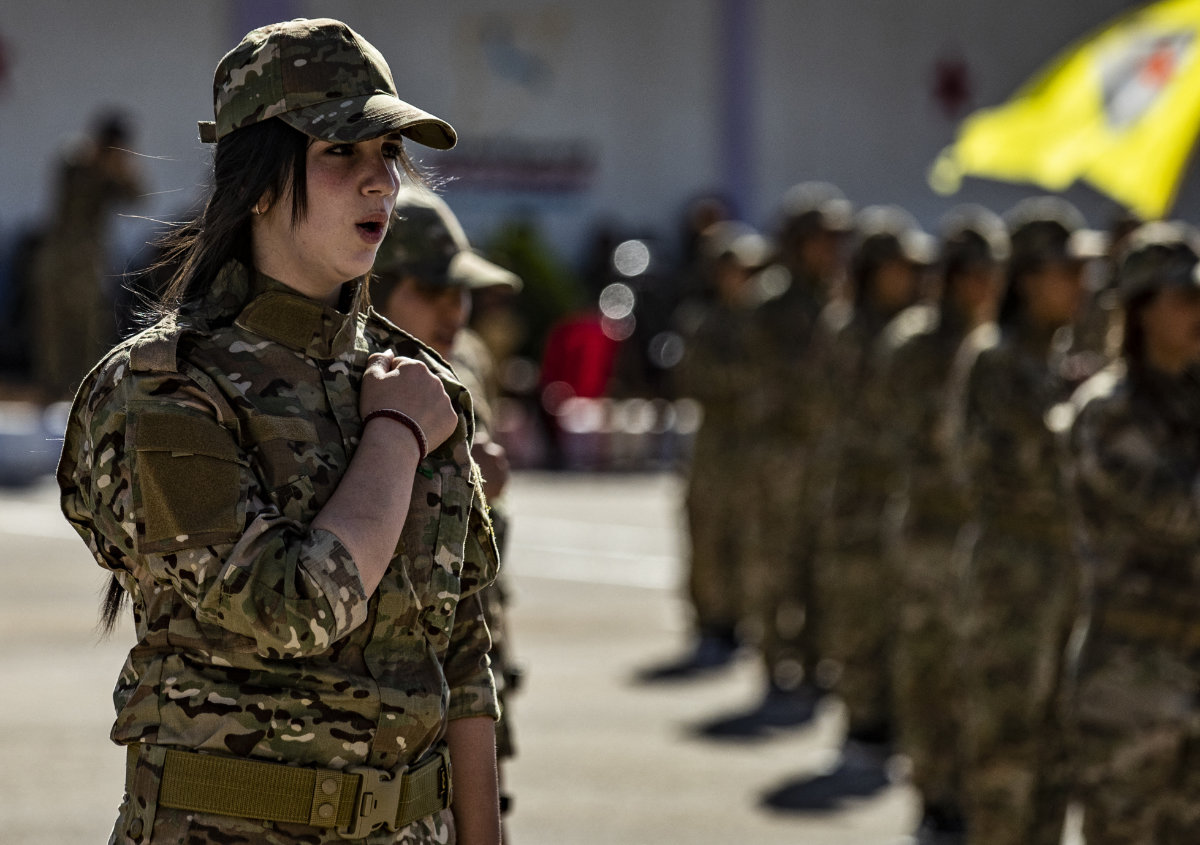
Rojava, the Kurdish-led autonomous region of northeast Syria, quickly became an epicenter for the broader Kurdish cause, wrapped in the revolutionary socialist zeal of the Kurdistan Workers’ Party, or PKK, of neighboring Turkey.
Once the Daesh threat had receded in Syria, many living in Rojava began to express reservations about the political aims of the main force within the SDF: The People’s Protection Units, or YPG.
The YPG is the militia of the Democratic Union Party, or PYD, a Syrian-Kurdish nationalist group linked to the PKK, which has waged a decades-old guerrilla war against the Turkish state in pursuit of greater political and cultural rights for Kurds in the country’s southeast.
According to a report by the Atlantic Council, to support the PYD’s political and military efforts in Syria, Kurds from Turkey, Iran and Iraq have traveled to Syria to join with the YPG.
FASTFACTS
The recruitment and use of children by armed forces or groups is a grave violation of child rights and international humanitarian law.
Sources told Arab News that while some Syrian Kurds were drawn to the PKK’s ideals, others viewed them as foreign and subversive.
As the SDF’s demand for troops increased to fend off militant attacks and later Turkish cross-border incursions — first in Afrin in 2018, then in northeast Syria in 2019 — SDF conscription quotas began to taken in more and more under-aged fighters, according to the sources.
Osso says he and fellow human rights activists have documented more than 80 similar cases of minors being forcibly conscripted by the SDF.
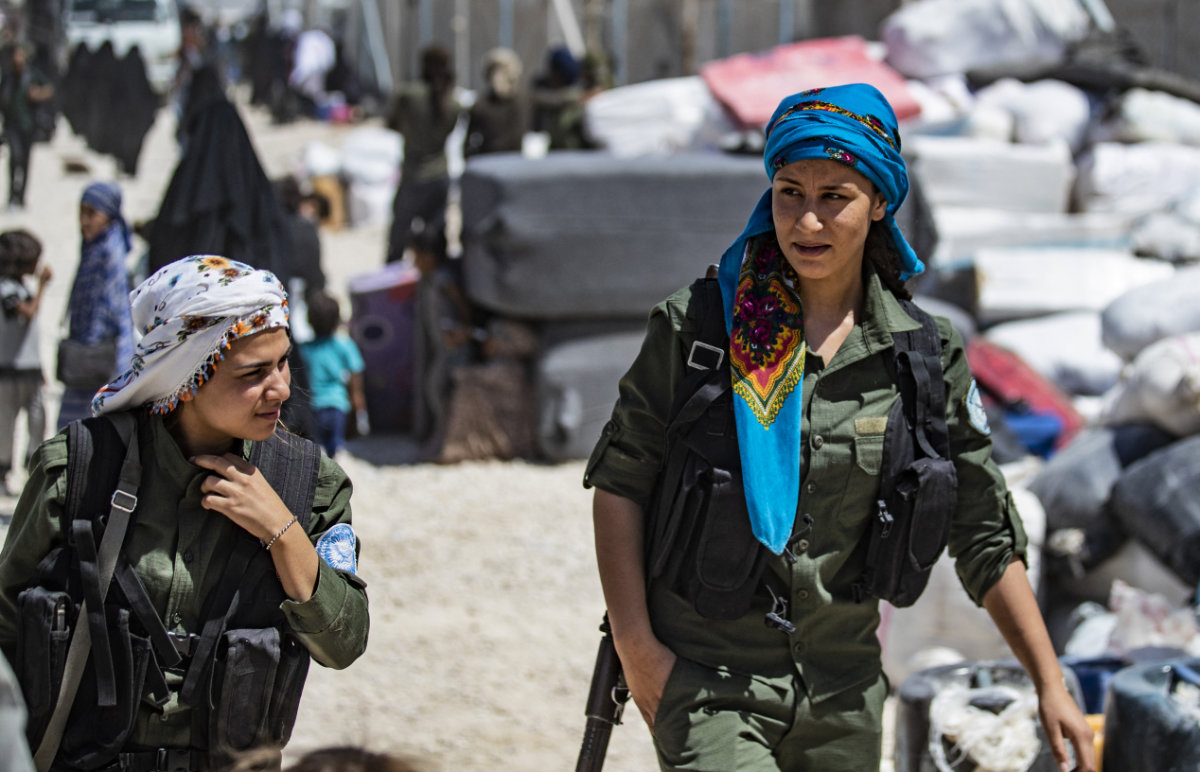
Among them was a 15-year-old girl who disappeared in December 2021 in the border town of Kobane.
“Her parents received confirmation she was there, but the Revolutionary Youth Movement refuses to give her back,” Osso said, referring to the PKK-affiliated group that conscripted her.
“Generally, all kids who were kidnapped in northern Syria received military and combat training and, most importantly and most dangerously, the kids are subjected to an intense brainwashing, to an extent where they’re told to forget their parents and where they came from,” he added.
“PKK ideals are all that matters. Parents aren’t allowed to have any contact with their children during the time of training.”
As the SDF’s power and influence grew over the course of the war against Daesh, analysts say, so too did the influence of the PKK, which had established a presence in Syria’s northeast at around the same time.

Thousands of its fighters moved in from the Qandil Mountains of Iraq’s northern Kurdistan region to take advantage of the strategic opportunities opening up on the southern flank of their mortal foe Turkey.
The comrades from the mountains were often received with open arms, with local groups deferring to their discipline and battlefield experience.
Posters plastered throughout Rojava towns depicting the “martyrs” of recent battles were always topped with the PKK’s fallen, while the SDF’s and YPG’s dead appeared below. Many of the casualties were not old enough to be carrying weapons.
The recruitment and use of children by armed groups is considered a grave violation of child rights and international humanitarian law.
In 2019, having faced criticism for the continued recruitment of children by SDF factions, Abdi — himself a Syrian-Kurdish veteran of the PKK — signed a UN-supervised pledge on behalf of the Rojava administration to end the practice.
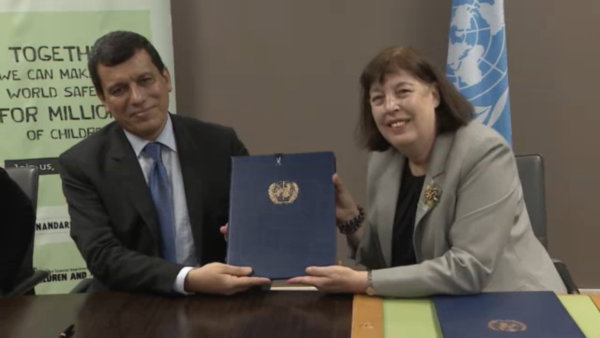
To enforce this commitment, the SDF established the Office of Child Protection from Armed Conflict, which has been credited with demobilizing and returning more than 200 children to their families.
But in November 2021, dozens of Kurdish families gathered outside the UN compound in the city of Qamishli, northern Syria, accusing the SDF of breaking its pledge.
Responding to the allegations, Farhad Shami, head of the SDF’s media center, said reports of ongoing child recruitment are inaccurate and exaggerated.
“There are no conscripted individuals under the age of 18 years old in the SDF,” he told Arab News. “Conscription abides by the written laws and rules, which clearly state no minors are allowed to join.”
Shami concedes that the Revolutionary Youth Movement, an unarmed faction, does recruit minors, but only with parental consent.

“We, in the SDF, confirm the implementation of all the conditions in the event that anyone wishes to join our forces, the most important of which is the appropriate age requirement,” he said.
However, Bassam Alahmad, co-founder and executive director of Syrians for Truth and Justice, told Arab News that “all armed forces from all factions in Syria are guilty” of recruiting child soldiers.
“The only difference is that the SDF signed a pledge with the UN in 2019 to stop the practice, unlike the Syrian regime forces and the rebels,” he said.
“While children were returned to their parents after that, this phenomenon is far from over. There should be zero cases of child recruitment.”

A report prepared by Syrians for Truth and Justice cites at least 17 cases of boys and girls being recruited during the last three months of 2021, only one of whom has been returned home. The fate of the others remains unknown.
A report by the Syrian Network for Human Rights said at least 156 fighters conscripted as children remain in SDF ranks, and 19 were conscripted in November 2021 alone.
Wherever children have served in combat zones, the lasting damage to cognitive development and emotional wellbeing is well documented.

“This is a heavy subject to tackle,” said Alahmad. “Unfortunately, the kids who spent months in training camps are in dire need of psychological support — a service rarely provided at the moment.”
When Al-Aleku was finally returned to her family one year later, her character had changed dramatically, remolded to fit the intense demands of soldiering and the duties of a loyal revolutionary.
“She was brainwashed with the communist ideals of the PKK and she was trained in weaponry,” Osso said. “Her parents were distraught.”



Yemen calls for international pressure against Houthi recruitment of child soldiersWest Africa has highest numbers of child soldiers, says UN

